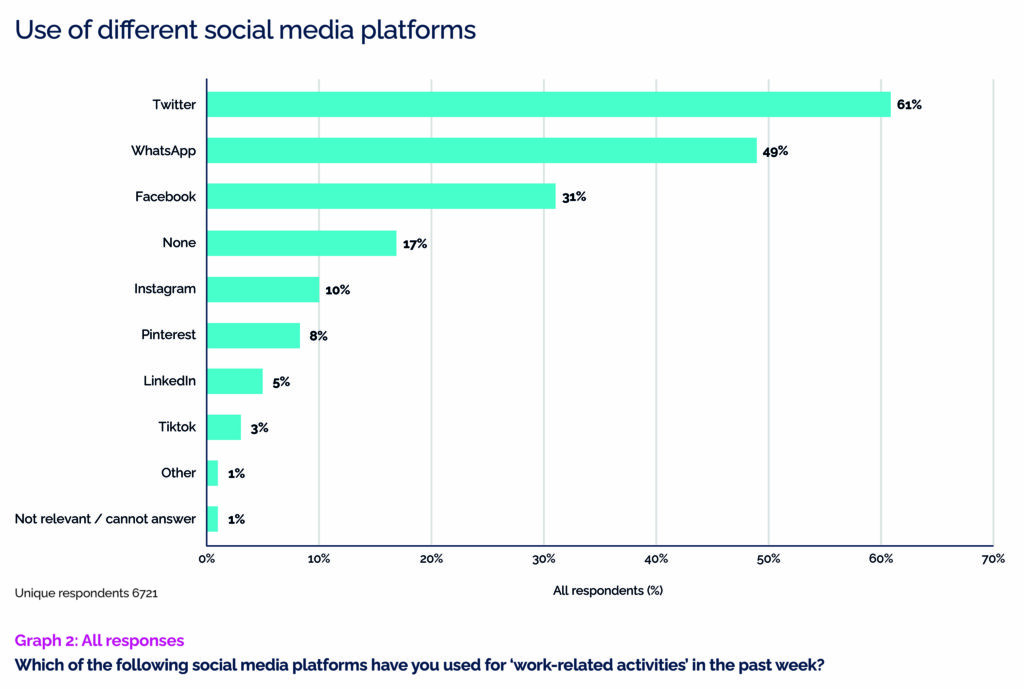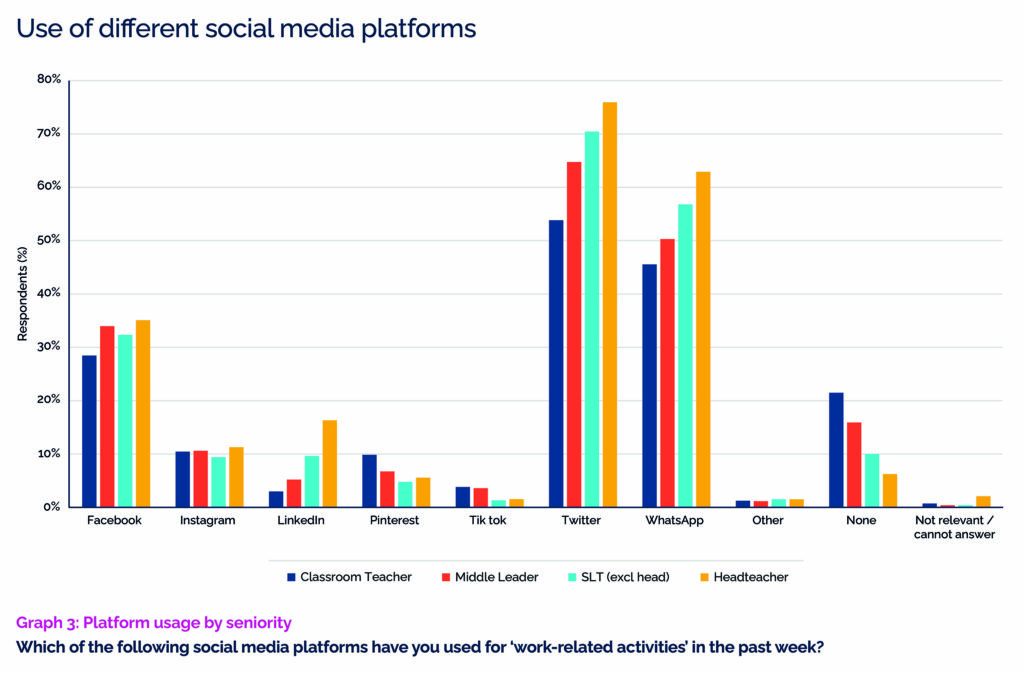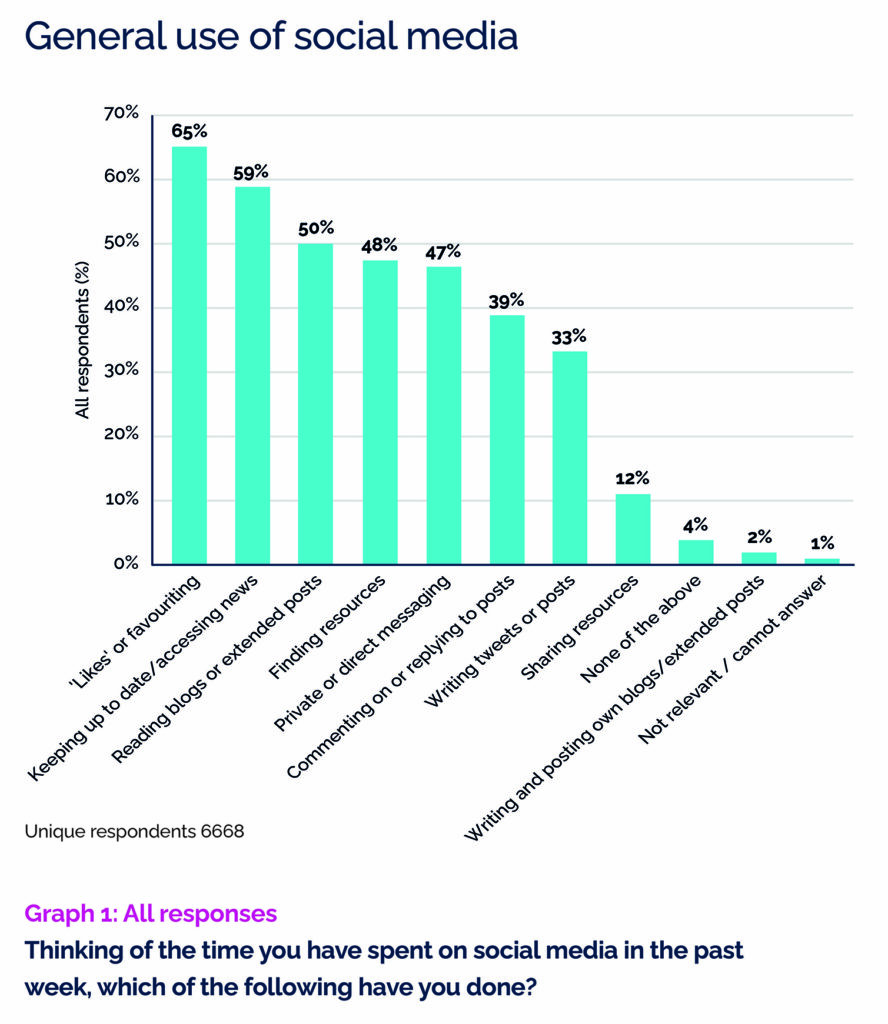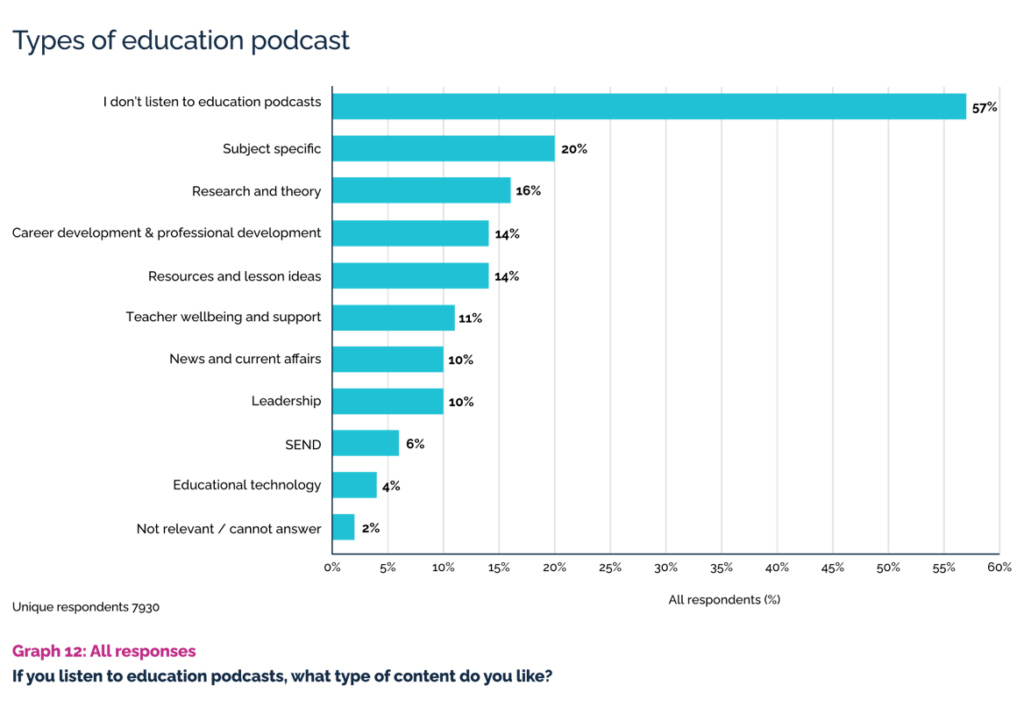A new report about the use of social media by teachers, and others in schools, has been published by the Edge Foundation. Anna Pedroza, founder of Pedroza Comms, worked with the Edge Foundation to design the research, analyse the results and write the report.
The social media habits of teachers report is based on a survey of 5000+ school-based educators (working with Teacher Tapp) the report is packed with interesting, and sometimes surprising, findings about educators’ attitudes to social media and their behaviour.
Twitter is the most used platform, but it’s not the whole picture
More educators use Twitter for work related activities than any other social platform and its followed by WhatsApp and Facebook. It’s quite different to general consumer use where the top three UK platforms are WhatsApp, Facebook and Instagram, with Twitter trailing in fifth position.
Beyond Twitter there’s also some variation dependant on role, for instance EYFS and KS1 teachers are greater users of Facebook and the highest users of Pinterest and Instagram. For subjects English and maths teachers are the highest users of Twitter and art teachers the lowest users.
However, it’s important to remember that almost a fifth of educators don’t use social media for work related activities.
Headteachers, not teachers, are the biggest users of social media
Just 6% of headteachers report not using social media for work related activities. Twitter is the most popular platform with three quarters (76%) of headteachers using it compared to just half of classroom teachers (54%).
Possibly linked to this high usage, headteachers are more likely to trust Twitter for education-related content than classroom teachers (62% compared to 52%). This may be linked to the fact that they’re most likely to be using social media to keep up to date (35% compared to 18% of classroom teachers) and Twitter is a useful provider of news.
Headteachers are also most likely to use LinkedIn for work related activities – possibly because there’s lots of leadership content on the platform, or because it is useful for senior careers or recruitment.
Educators think about their job even when not in work mode
Anyone who says teachers don’t work hard enough should consider educators ‘non-work’ use of social media. ‘Looking for resources’ was the fourth most likely reason they would spend time on social media – almost half of respondents said they’d done this in the past week. Although it underlines how committed many educators are to doing their job well, it’s also concerning when teacher workload is a concern.
Education podcasts, still an emerging media
Despite the 100s of education podcasts available, 57% of respondents said they didn’t listen to education related podcasts. It seems that although consumption of podcasts is huge in the consumer world, it’s not a priority for educators.
However, as people become more senior they are more likely to listen to education podcasts. 61% of classroom teachers said they didn’t listen to education podcasts but this reduced to 43% for headteachers.
What does it mean for education marketing and comms people?
- Broad trends don’t tell the whole story – Different subjects, phases, roles and experience all show different behaviours. Get to know your audience.
- Different to consumer behaviour –Twitter is still the dominant platform it’s not about Instagram or TikTok.
- Resources, resources, resources – Teachers are eager to find resources using social media, even when they’re not in work mode.
- Over reliance on Twitter is risky – globally there is a growing number of people leaving Twitter for other platforms how this will impact edutwitter is not known but it’s important to have a backup plan
For more information download the report: https://www.edge.co.uk/about-edge/our-networks/education-comms-network/the-social-media-habits-of-teachers/
Get free education marketing tips and advice
Our go-to email resources are for anyone looking to reach an education sector audience. Get inspiration and practical help on everything from pitching your story to journalists, to engaging influencers to spread the word, to securing TV coverage.




